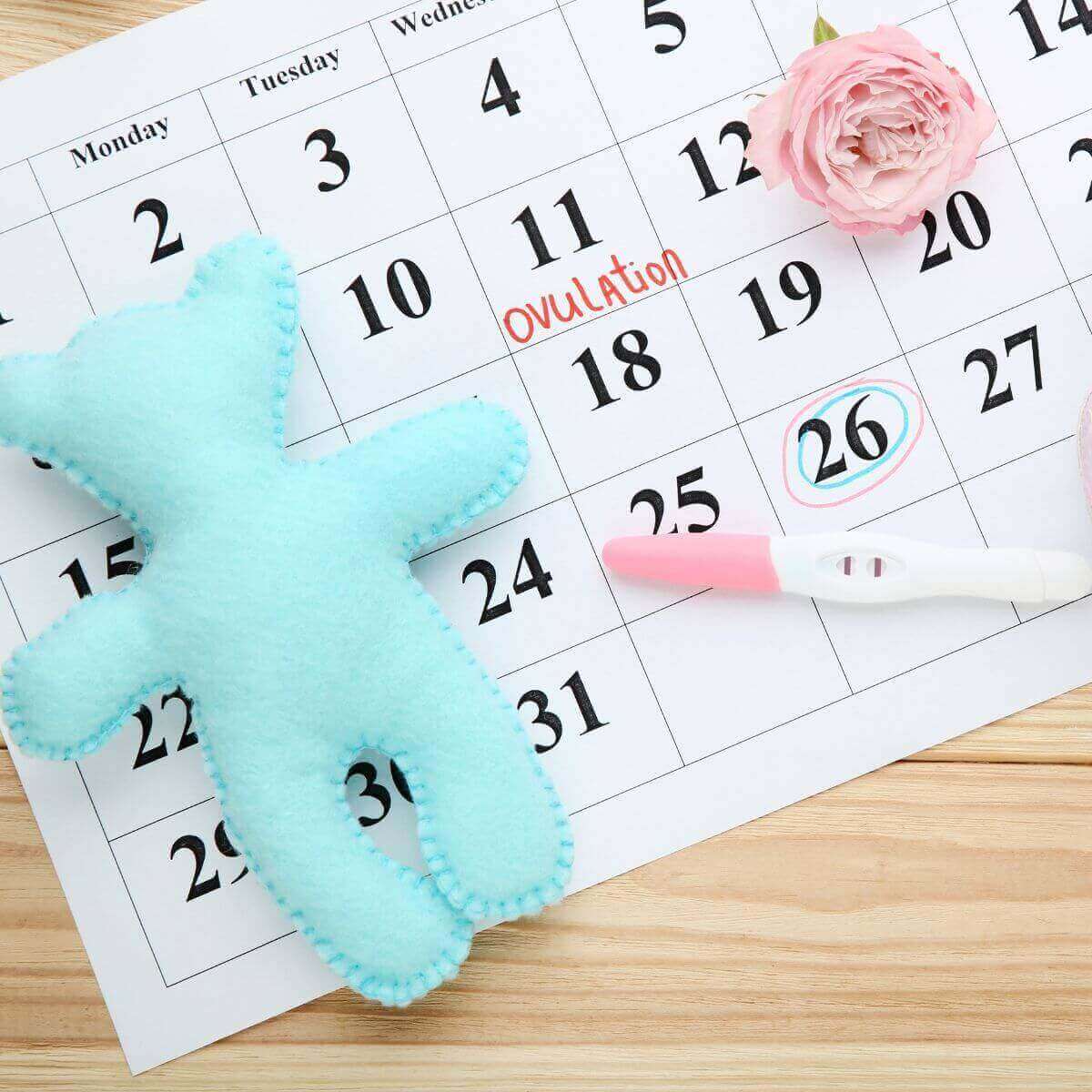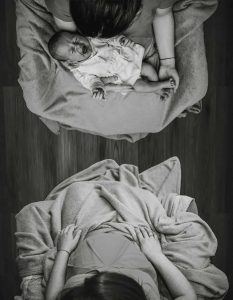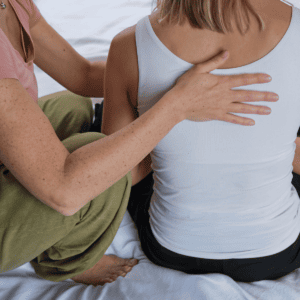Okay, you’ve thought about it and decided that the time has come; you’re ready to have a baby! In a moment of excitement and anticipation, you throw out your birth control pills and start dreaming of the moment when you conceive. Now, what are the signs of ovulation after stopping the pill?
How will you know when your body is ready to start trying to conceive? The answer is that everyone’s body is different, but there ARE signs that your body is ready for conception after you stop the pill. Basically, you’ll need to start tracking your fertility and ovulation.
If you’ve never had to worry about fertility tracking or using an ovulation monitoring app, you probably don’t realize what the process entails. Because while we might talk about the shitty effects of menstrual cycles, like cramping and sore boobs, analyzing things like cervical mucus isn’t a common conversation point among friends.
Don’t worry, friend. Come sit next to me and get ready to chat about the ovulation symptoms you can expect after you stop taking the pill.

This site contains affiliate links, meaning that we earn a small commission for purchases made through our site. We only recommend products we personally use, love, or have thoroughly vetted.
- How Do Birth Control Pills Work?
- Can Taking Birth Control Affect Your Fertility?
- How Long After Birth Control for Your Hormones to Return to Normal?
- When’s the Earliest for Ovulation After Stopping the Pill?
- 5 Signs of Ovulation After Stopping The Pill
- Is it Dangerous to Conceive Too Soon After Stopping Contraception?
- Should You See a Doctor if You Don’t Get Pregnant or Start Ovulating Right Away?
- Give Your Body Some Time to Adjust After Stopping the Pill (But Ask Your Doctor if You Have Questions!)
How Do Birth Control Pills Work?
If you choose barrier methods to prevent pregnancy (condoms, diaphragms, etc.), you’ll get a one-time use contraceptive experience. However, hormonal birth control methods, like birth control pills, provide longer-lasting protection, but how?
The most common type of birth control pill includes two hormones: estrogen and progestin. These hormones prevent pregnancy in various ways, such as:
- Stopping Ovulation
- Increasing and Thickening Cervical Mucus
- Thinning Uterine Lining
In combination, these prevent your ovaries from releasing eggs, make it hard for sperm to enter your uterus, and minimize the chances an embryo can implant onto your uterine wall.
There’s another type of pill known as a progestin-only pill, a.k.a. the “Mini Pill.” This medication won’t prevent ovulation but thins your endometrial lining and thickens cervical mucus.
Can Taking Birth Control Affect Your Fertility?
Remember those long-ago high school days when you went to the gynecologist and got your first package of oral contraceptives? For many of us, it might feel like a lifetime of being on birth control before you throw caution to the wind and start your procreation journey.
If you’re anything like me, you might worry whether the hormones in your pills will cause irreparable fertility damage when used long-term.
Or maybe not; I’m a natural anxiety ball who will always find something to freak out about!
If you’re concerned, though, I have good news! Studies show continual birth control usage does not affect your future fertility!
However, if you have an infertility-causing condition like PCOS or endometriosis, the side effects of those disorders can return post-birth control. Sudden fertility troubles won’t be related to being on the pill for too long, though.
How Long After Birth Control for Your Hormones to Return to Normal?
Just as humans aren’t carbon copies of one another, neither are our reproductive systems. That’s why it’s hard to put a number on how long it will take your “standard” hormones to level out after stopping the pill.
Thanks to an article by the Cleveland Clinic, one thing we do know is that the hormones that are IN your pills start leaving your system right away. They’ll be entirely out of your system within just a few days.
That doesn’t mean everything goes back to normal right away, though. Some of us might be “lucky” enough to get our period back right away, but for others, it can take months.
If you reach your 3-month “Post Birth Control” anniversary and haven’t gotten a period, it’s a good idea to make an appointment with your healthcare provider.
How Soon Can You Get Pregnant?
Oh, how I wish I could give you the concrete answers you deserve. Unfortunately, though, getting pregnant after stopping birth control isn’t predictable. Factors like age, weight, and overall health can affect how long it takes you to conceive.
If you’re wondering about your chances of getting pregnant the first month off birth control, you’re not alone! Many women are either excited or terrified (or somewhere in-between) about the prospects of conceiving the first month off birth control.
Sure, some people immediately end up with a bun in the oven. For others, it might take up to a year after getting off hormonal birth control.
When’s the Earliest for Ovulation After Stopping the Pill?
Once again, everyone’s on a different schedule after kicking their birth control to the curb. Generally, you’ll probably ovulate for the first time within one to two months of stopping contraception.
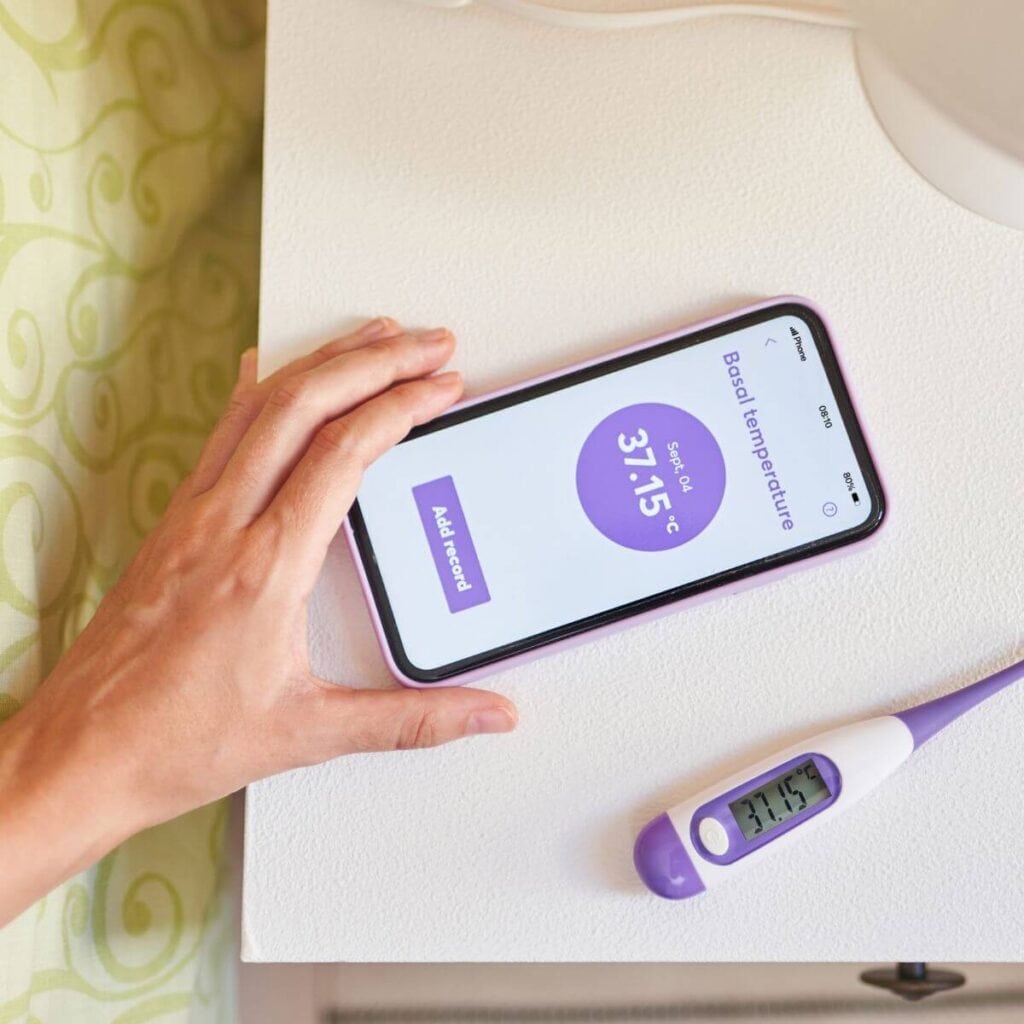
5 Signs of Ovulation After Stopping The Pill
Have you ever noticed how much time we spend discussing PMS symptoms? From cramps to mood swings, most of us know what to expect before we even reach our first menstrual cycle.
One thing we don’t often talk about is ovulation side effects.
While some of us might not experience any pre-ovulation symptoms, others notice a great deal. If you’re impatiently waiting, be on the lookout for these signs of ovulation after stopping the pill:
1. “Slippery” Cervical Mucus
I’m sure analyzing the condition of your cervical mucus (CM) isn’t at the top of your priority list, but if you want to know when you’re ovulating, give it a little extra attention.
So, what are you looking for when it comes to your discharge? The keywords are “wet,” “clear,” and “slippery.” CM tends to thicken right before ovulation, but then it thins back out to make it easier for sperm to swim up to your egg.
2. Increased Sex Drive
Since sex is a vital part of getting pregnant, your libido may increase around ovulation to help get you in the mood. Researchers refer to this as your “body’s biological desire to reproduce.“
3. Breast Tenderness or Pain
Thanks to pesky hormonal fluctuations, breast pain, and tenderness are a regular part of our menstrual cycles and ovulation. We often equate sore boobs to getting our period, but many of us start experiencing pain around ovulation, and it continues until Aunt Flo arrives.
While this pain is usually mild, some people experience more severe breast symptoms during their cycle.
4. Spike in Basal Body Temperature
Taking your basal body temperature (BBT) is a fantastic place to start if you’re looking for one of the best ways to track ovulation.
Your BBT is your body’s natural lowest temperature after a period of rest. What does that mean? It means you take it first thing in the morning when you wake up before you even climb out of bed!
On average, our BBTs run around 96 – 98 degrees F. However, you might notice a spike between .04 F and 1 F during ovulation. Some people even notice a mild BBT dip right before ovulation.
Are you interested in trying this technique? Remember to purchase a BBT thermometer!
It’s also helpful to download an ovulation tracker app where you can input your daily temperatures.
5. Bloating or Cramping
Do your pants feel tighter than usual during certain times of the month? Is there discomfort or cramping in your lower abdomen? These could easily be signs of ovulation! As your hormone levels spike before and during ovulation, especially estrogen and progesterone, you might notice bloating or cramping.
Is it Dangerous to Conceive Too Soon After Stopping Contraception?
Have you ever heard that you should wait at least three months to try and get pregnant after stopping the pill? Well, guess what; that’s not correct.
Some people used to believe your miscarriage risk was higher if you got pregnant too soon. Since the hormones from your birth control pills leave your body within a week of getting off birth control pills, though, there’s no reason you can’t conceive right away.
Should You See a Doctor if You Don’t Get Pregnant or Start Ovulating Right Away?
Wouldn’t it be lovely if you could press a magic button when you’re ready to get off birth control and have a baby? The button would automatically restart your normal reproductive cycle and ensure a pregnancy within a few months.
It would be amazing if that was the case, but it’s not time to panic if things don’t happen immediately. In fact, experts say it can take several months (sometimes up to 12) to get pregnant after stopping hormonal contraception.
How Long Should You Wait Before Seeing Your Doctor?
So, what’s “too long?” How long should you wait before asking questions about a lack of period or pregnancy?
Let’s start with periods and ovulation; if you go three months without a period after stopping the pill, it’s time to schedule an appointment with your doctor. Granted, this might not be unusual if you had irregular periods before starting birth control. Still, you shouldn’t go longer than three months with no menstrual cycle.
For pregnancy, wait at least a year after stopping birth control before making an appointment with your practitioner.
Remember, birth control pills won’t cause infertility. That doesn’t mean you might not have other underlying issues contributing to pregnancy troubles. Your doctor can perform fertility testing to determine whether there’s a problem.
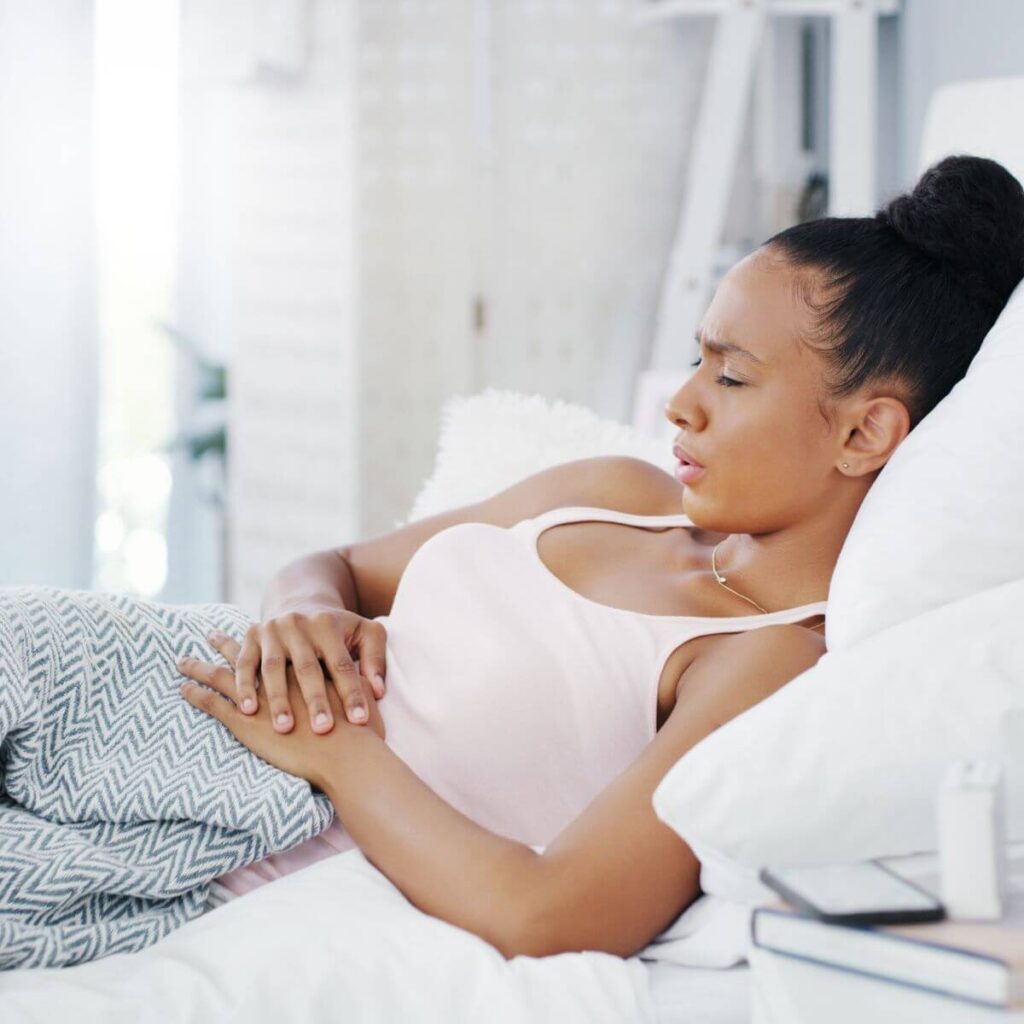
Give Your Body Some Time to Adjust After Stopping the Pill (But Ask Your Doctor if You Have Questions!)
There’s nothing wrong with your body adjusting after getting off birth control pills. This is a normal part of the process. Don’t let that deter you from asking questions, though!
If you’re nervous about anything you’re experiencing (or not experiencing) in terms of signs of ovulation after stopping the pill, let your doctor know. Even if there’s nothing unusual going on, it’s always worth a second opinion to put your mind at ease.
Be kind to your body and give it a chance to do what it needs to do post-birth control.
Did you experience any signs of ovulation after stopping the pill?

